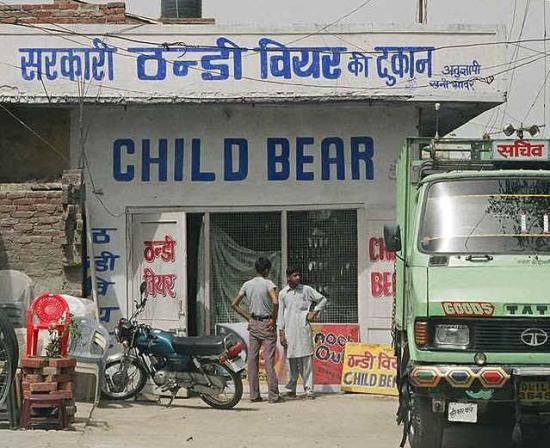When I first visited New Zealand, I asked for directions to the nearest petrol pump and was greeted by confused looks. Apparently, what I was looking for was a gas station, where you get gas, not petrol.
There are many such words that we Indians regularly use which are uncommon in western culture.
How many of you have gone for a movie and asked for “normal” water, because your throat is bad (I mean you have a sore throat), and you don’t want to drink cold water.

Or you have gone shopping, bought a toaster and asked the salesperson for a “fresh” piece, because you don’t want the one on display?
I know, we all do that. Here’s a list of words and phrases that Indians use freely, but are not understood by native speakers of the language.
Typical words Indians use that confuse foreigners
Signal: This is a word that Indians use for traffic lights. Preferred word: Set of lights or traffic lights.
Prepone: There is no such word in the language of the British, but this word is prevalent in India where it is used as an acronym to postpone. Preferred word: bring forward.
Hanky Panky: OK, this one is really funny. My friend told her kids who were being picked up their friend’s mother for a sleepover, “Have fun but no hanky panky!” The lady who had come to pick up the kids nearly fainted. In India, hanky panky is broadly used for anything that’s shady. In the western world, it generally refers to sexual behaviour that’s dubious or unacceptable.
Give tests: Indians don’t “take” tests, they “give” tests, an usage which is a legacy of literal translation from an Indian language.
Rubber: Often used for an eraser in India.
Mugging: Indian students cramp up a lot of information just before “giving” exams. It’s called mugging.
Out of station: This phrase is used to describe going away, usually out of city or town.
Tiffin: Yes, that’s lunch-box, but in India it is tiffin, whether you are going to school or work. And by the way, in India, you don’t go to ‘work’, you go to ‘office’.
Same to you: Indians use this instead of ‘wish you the same’. They also say “Thanks very much”.
Having: When Indians great creative, they use ‘having’ not as a word but something else. This is how it is used: “Our company is having offices in…“. It is also used as: “I am not having that information” which means “I don’t know”.
Based out of: If you ask an Indian “Where is your office?”, don’t be surprised if he tells you, “I am based out of Auckland”. Similarly, someone’s office could be located “at” Auckland, not “in” Auckland.
Pan-India: Yes, many Indian companies have “pan-India” presence, which implies they have offices in many Indian cities.
Revert back: Indians love to use the word revert and we don’t stop there. We attach “back” to it and say “I will revert back to you.” Revert implies “getting back to someone”, and doesn’t need the extra “back”.
Pressurized: When an Indian tells you “I am pressurized”, it does not mean what you think it does. He means that he is hard pressed for time.
Yesterday night: I know it’s an oxymoron, but it is a common phrase used in India.
Nothing doing: There’s no accurate translation of this Indian phrase, but it loosely implies “no arguments on this”. However it is used in a positive tone among friends, like inviting someone for dinner: “We will see you for dinner this Saturday. Please don’t make any excuses. Nothing doing!”
Cousin brother/sister: OK, there’s redundancy in this phrase but I guess Indians use it to specify the gender of the cousin.
Next to next: Would you be able to guess what it means? Here’s how it is used: “If you can’t come next week, how about next to next week?”
You’re coming or what: This means “Are you coming or not?”
Solid: OK, this does not refer to state of matter. It is used as a superlative. “We had solid fun.” “What a solid rain this morning!”
Hard: This word is used in place of “difficult”. Like, when you ask a student, “How was the exam?” He says, “Hard!”
On my face: Again a literal translation from a regional language, Indians may tell you “on your face” that you are fat.
Your good name? In India, it is common and not at all unfriendly to ask a stranger their name. Indians soften the blow by adding “good” or “sweet” to the question. This practice is absent in the western world, and foreigners are often perplexed by the intimidating question.
Do you have any favorite Indian phrases that confuse you? Share in comments below.

Leave a Reply